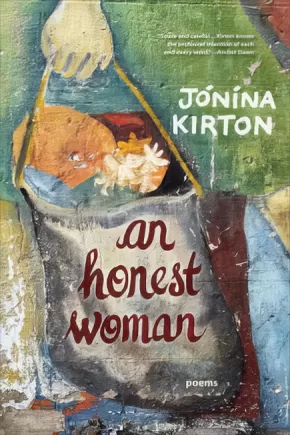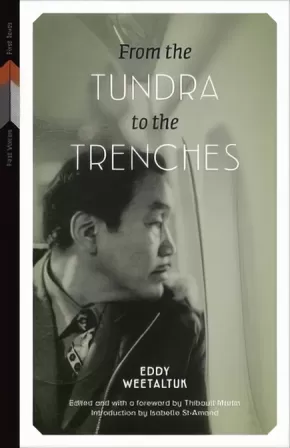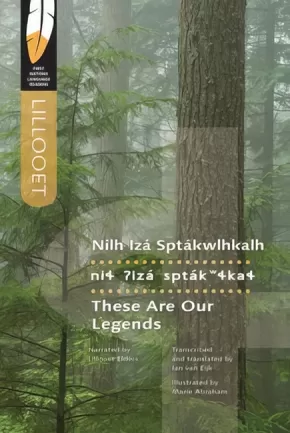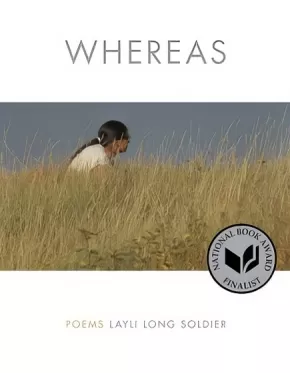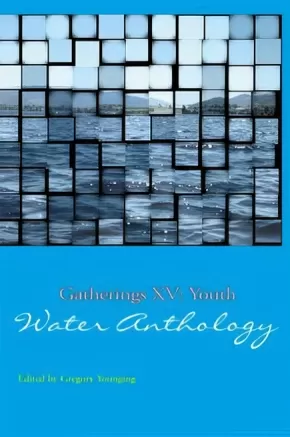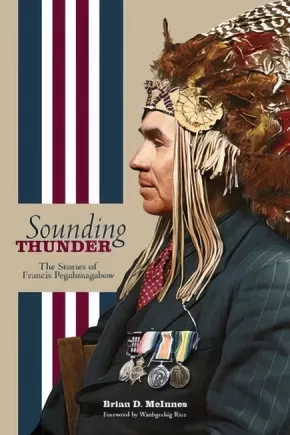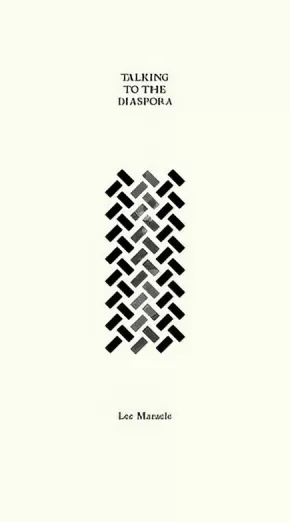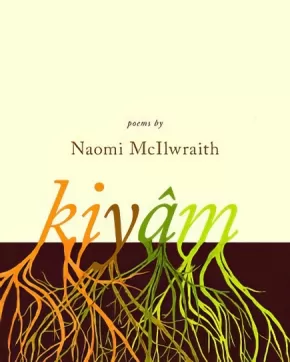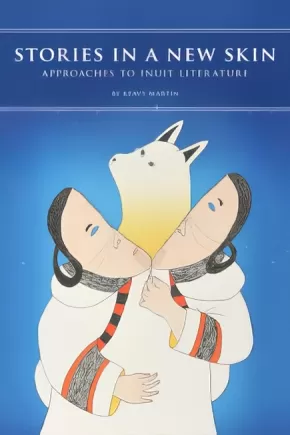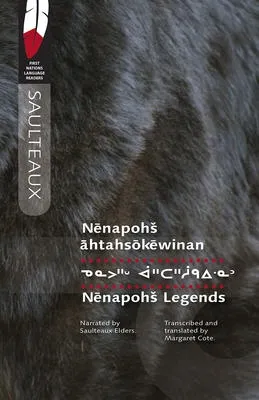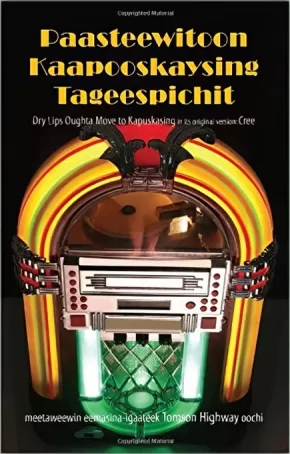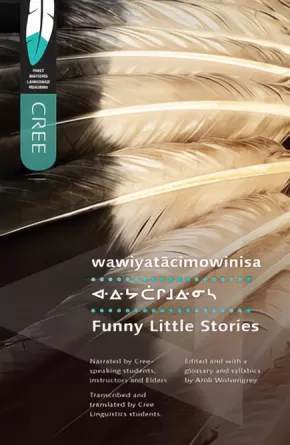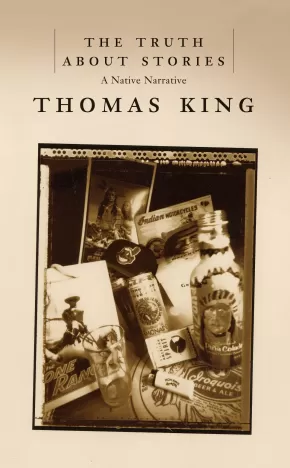
Language / Literary Studies
31
-
44
of
44 Results;
Sort By
Go To
of 3
An Honest Woman
$16.95
Format:
Paperback
Text Content Territories:
Indigenous Canadian;
ISBN / Barcode: 9781772011449
Synopsis:
Synopsis:
An Honest Woman by Jonina Kirton confronts us with beauty and ugliness in the wholesome riot that is sex, love, and marriage. From the perspective of a mixed-race woman, Kirton engages with Simone de Beauvoir and Donald Trump to unravel the norms of femininity and sexuality that continue to adhere today.
Kirton recalls her own upbringing, during which she was told to find a good husband who would “make an honest woman” out of her. Exploring the lives of many women, including her mother, her contemporaries, and well-known sex-crime stories such as the case of Elisabeth Fritzl, Kirton mines the personal to loosen the grip of patriarchal and colonial impositions.
An Honest Woman explores the many ways the female body is shaped by questions that have been too political to ask: What happens when a woman decides to take her sexuality into her own hands, dismissing cultural norms and the expectations of her parents? How is a young woman’s sexuality influenced when she is perceived as an “exotic” other? Can a woman reconnect with her Indigenous community by choosing Indigenous lovers?
Daring and tender in their honesty and wisdom, these poems challenge the perception of women’s bodies as glamorous and marketable commodities and imagine an embodied female experience that accommodates the role of creativity and a nurturing relationship with the land.
Reviews
“Jonina Kirton is courageously honest about her life experiences as a female of Indigenous and immigrant ancestry. Many poems resonate deeply, as we identify with her personal quest to figure out who she is, and the unacceptable things done to her. Her raw honesty is unsettling and uncomfortable, because it can be our truth too. Her poems depict devaluation and dehumanization, grieving, lessons learned. Her poems offer important insights as to why there are thousands of missing and murdered Indigenous women.” — Senator Lillian E. Dyck
“When writing from the voice of between, writer and reader have no place to hide. Assumptions and camouflage fall away. Murdered, missing, and violated women and girl voices have been silenced. The story lethally repeats. Kirton picks over how she was raised familially and culturally like a crime scene. Too, she affirms, ‘I have been here forever and I will rise again and again.’ Tough, eloquent, revelatory, these poems are the very ones we are desperately in need of.” — Betsy Warland, author of Oscar of Between: A Memoir of Identity and Ideas
“I’m sure people have been looking at me strangely every time I gasp, but I can’t glance away from the page for even a second to notice. Some of the poems end sharply, with a punch; some deliberately leave me searching for the next line; others show the repetition of heartbreaking cycles of violence and oppression, but offer a portrayal of resilience, too.” — All Lit Up!
Educator Information
This book would be useful for Women's Studies, Creative Writing, English Language Arts, Poetry, and English courses. Recommended for grades 11-12 and university-college students.
Please be advised, this book contains explicit sexual references and references to sexual and physical abuse.
Additional Information
104 pages | 6.00" x 9.00"
From the Tundra to the Trenches
$24.95
Editors:
Format:
Paperback
Text Content Territories:
Indigenous Canadian; Inuit;
ISBN / Barcode: 9780887558221
Synopsis:
Synopsis:
“My name is Weetaltuk; Eddy Weetaltuk. My Eskimo tag name is E9-422.” So begins From the "Tundra to the Trenches." Weetaltuk means “innocent eyes” in Inuktitut, but to the Canadian government, he was known as E9-422: E for Eskimo, 9 for his community, 422 to identify Eddy.
In 1951, Eddy decided to leave James Bay. Because Inuit weren’t allowed to leave the North, he changed his name and used this new identity to enlist in the Canadian Forces: Edward Weetaltuk, E9-422, became Eddy Vital, SC-17515, and headed off to fight in the Korean War. In 1967, after fifteen years in the Canadian Forces, Eddy returned home. He worked with Inuit youth struggling with drug and alcohol addiction, and, in 1974, started writing his life’s story. This compelling memoir traces an Inuk’s experiences of world travel and military service. Looking back on his life, Weetaltuk wanted to show young Inuit that they can do and be what they choose.
Reviews
“Endlessly interesting; an account of a traditional way of life now lost, a gripping first-hand account of a front-line soldier during the war, and an honest account of a young man’s adventures and misadventures. It is to all our benefit that it has, at last, found its way into print." — Michael Melgaard, The National Post
“Tender, honest, and often raw, Weetaltuk’s storytelling is masterful, engrossing, and deeply human. He has imbued his writing with a philosophical nuance that is characteristically Inuit: very subtle, yet profound." — Siku Allooloo, The Malahat Review
“Recounts the adventures of Inuk veteran Eddy Weetaltuk, from his early life in the North to his escape to the south under an assumed identity, to his enlistment in the Canadian Forces, which took him across the Canadian West, to Japan and Germany, and into battle in Korea. Adopting the name Eddy Vital was necessary in 1951 because the federal government restricted the movement of Inuit people. Through his alias, Weetaltuk was able to see the world; in the army, he experienced equality and respect – all the while never forgetting his true identity as an Inuk. The publication history of From the Tundra to the Trenches is itself a four-decades-long saga of many twists and turns. That it now finds English publication (after first appearing in French and German) owes to the author’s conviction that his life story be read as a work of literature with the makings of a bestseller. Eddy Weetaltuk was right.”— Jade Colbert, The Globe and Mail
“For those interested in Inuit culture it offers the rare and valuable perspective of an Inuk looking out from his culture at the world rather than the world looking in. “ — P. T. Sherrill, CHOICE
Educator & Series Information
From the Tundra to the Trenches is the fourth book in the First Voices, First Texts series, which publishes lost or underappreciated texts by Indigenous writers. This new English edition of Eddy Weetaltuk’s memoir includes a foreword and appendix by Thibault Martin and an introduction by Isabelle St-Amand.
Additional Information
280 pages | 5.50" x 8.50" | 25 colour illustrations, 3 b&w photographs, bibliography
These Are Our Legends
$24.95
Format:
Paperback
Text Content Territories:
Indigenous Canadian; First Nations; Salish; Interior Salish; St'at'imc (Lillooet, Lil'Wat);
Grade Levels: 12; University/College;
ISBN / Barcode: 9780889773967
Synopsis:
Synopsis:
Like all First Nations languages, Lillooet (Lil'wat) is a repository for an abundantly rich oral literature. In These Are Our Legends, the fifth volume of the First Nations Language Readers series, the reader will discover seven traditional Lillooet sptakwlh (variously translated into English as "legends," "myths," or "bed-time stories.")
These texts are presented in a technical transcription that can be used by linguists, and also in a practical orthography that can be used by Lillooet speakers themselves. An English translation is also given. Basic information on the Lillooet language, its grammar, and a glossary are included in the volume.
With thanks to the Mount Currie Cultural Centre and the Tszil Publishing House.
Series Information
These Are Our Legends is part of the First Nations Language Readers series. With a mix of traditional and new stories, each First Nations Language Reader introduces an Indigenous language and demonstrates how each language is used today. The University of Regina Press’s long-term goal is to publish all 60+ Indigenous languages of Canada.
Additional Information
120 pages | 5.50" x 8.50" | Narrated by Lillooet Elders | Transcribed and Translated by Jan van Eijk
Authenticity Note: This book has been labelled as containing Authentic Indigenous Text because of the narration from Lillooet Elders. It is up to readers to determine if this text will work as an authentic resource for their purposes.
Whereas: Poems
$22.99
Format:
Paperback
Text Content Territories:
Indigenous American; Native American; Sioux; Lakota;
Grade Levels: 12; University/College;
ISBN / Barcode: 9781555977672
Synopsis:
Synopsis:
WHEREAS her birth signaled the responsibility as mother to teach what it is to be Lakota therein the question: What did I know about being Lakota? Signaled panic, blood rush my embarrassment. What did I know of our language but pieces? Would I teach her to be pieces? Until a friend comforted, Don’t worry, you and your daughter will learn together. Today she stood sunlight on her shoulders lean and straight to share a song in Diné, her father’s language. To sing she motions simultaneously with her hands; I watch her be in multiple musics. —from “WHEREAS Statements”
WHEREAS confronts the coercive language of the United States government in its responses, treaties, and apologies to Native American peoples and tribes, and reflects that language in its officiousness and duplicity back on its perpetrators. Through a virtuosic array of short lyrics, prose poems, longer narrative sequences, resolutions, and disclaimers, Layli Long Soldier has created a brilliantly innovative text to examine histories, landscapes, her own writing, and her predicament inside national affiliations. “I am,” she writes, “a citizen of the United States and an enrolled member of the Oglala Sioux Tribe, meaning I am a citizen of the Oglala Lakota Nation—and in this dual citizenship I must work, I must eat, I must art, I must mother, I must friend, I must listen, I must observe, constantly I must live.” This strident, plaintive book introduces a major new voice in contemporary literature.
Additional Information
114 pages | 7.04" x 8.84"
Gatherings Journal XV: Youth Water Anthology
$22.95
Editors:
Format:
Paperback
Text Content Territories:
Indigenous Canadian;
ISBN / Barcode: 9781926886404
Synopsis:
Synopsis:
Gatherings XV: Youth - Water Anthology features writing submissions from B.C. based Indigenous Youth on the theme of water.
The Gatherings-Water project reflects the cultural rejuvenation of Indigenous Youth in B.C. It is not only a revival of a respected anthology series, but also a new level of engagement between publishing house and community, between established writers and emerging voices, and finally a testament to the connection of Indigenous Youth with the life-sustaining power of water.
Essays, narratives, fictional pieces and poems are grouped thematically under headings:
- Drip, Drip, Drip
- Splashes
- Tears
- Cleansing Rain
- Rivers Flow
- Waves
- Tsunami
The authors are from all over BC from Haida Gwaii to Vancouver Island.
Educator Information
Useful for English Language Arts courses for grades 10-12.
Additional Information
248 pages | 6.00" x 9.00"
Sounding Thunder: The Stories of Francis Pegahmagabow
$24.95
Format:
Paperback
Text Content Territories:
Indigenous Canadian; First Nations; Anishinaabeg; Ojibway;
ISBN / Barcode: 9780887558245
Synopsis:
Synopsis:
Francis Pegahmagabow (1889–1952), a member of the Ojibwe nation, was born in Shawanaga, Ontario. Enlisting at the onset of the First World War, he became the most decorated Canadian Indigenous soldier for bravery and the most accomplished sniper in North American military history. After the war, Pegahmagabow settled in Wasauksing, Ontario. He served his community as both chief and councillor and belonged to the Brotherhood of Canadian Indians, an early national Indigenous political organization. Francis proudly served a term as Supreme Chief of the National Indian Government, retiring from office in 1950.
Francis Pegahmagabow’s stories describe many parts of his life and are characterized by classic Ojibwe narrative. They reveal aspects of Francis’s Anishinaabe life and worldview. Interceding chapters by Brian McInnes provide valuable cultural, spiritual, linguistic, and historic insights that give a greater context and application for Francis’s words and world. Presented in their original Ojibwe as well as in English translation, the stories also reveal a rich and evocative relationship to the lands and waters of Georgian Bay.
In Sounding Thunder, Brian McInnes provides new perspective on Pegahmagabow and his experience through a unique synthesis of Ojibwe oral history, historical record, and Pegahmagabow family stories.
Awards
- Fred Landon Award, Ontario Historical Society (2018)
- American Book Award, Before Columbus Foundation (2017)
Reviews
“Debwemigad Nimkiig gaye Aadizookanag zhawenimaawaad. Brian McInnes has clearly been blessed by the Thunders and Great Storytellers. With Sounding Thunder he has achieved the perfect balance of personal memoir and scholarly inquiry. He shares with readers the stories that have connected one generation to another and in these cycles we find the truth about living. Dibaajimowinan omaada’oozhinang mii igo aanikoobijige.” – Margaret Ann Noodin, Assistant Professor, Department of English, University of Wisconsin
“Debwemigad Nimkiig gaye Aadizookanag zhawenimaawaad. Brian McInnes has clearly been blessed by the Thunders and Great Storytellers. With Sounding Thunder he has achieved the perfect balance of personal memoir and scholarly inquiry. He shares with readers the stories that have connected one generation to another and in these cycles we find the truth about living. Dibaajimowinan omaada’oozhinang mii igo aanikoobijige.” – Margaret Ann Noodin, Assistant Professor, Department of English, University of Wisconsin
“This uniquely intimate portrait illuminates Francis’s commitment to live in a way that reflected the spiritual values of sharing and respect for life, despite his military record of 378 enemy kills for which he became renowned.” – Allyson Stevenson, University of Guelph, Canadian Journal of History
“McInnes’ Sounding Thunder brings complexity and nuance to the story (or stories) of Francis Pegahmagabow’s life. Past authors have portrayed Pegahmagabow alternatively as a warrior, a veteran, and/or a political activist. Certainly, these depictions capture snapshots of his character. But McInnes goes much further, adding breadth and depth to the sketch of the Nishnaabe man from Georgian Bay. He has produced a high-quality piece of historical research that tells an important story of Indigenous peoples as human beings with challenges that exist both within and without the constraints of colonialism.” – Eric Story, Laurier Centre for Military, Strategic and Disarmament Studies
“Sounding Thunder is invaluable for those working in biographical, historical, Indigenous, military and political studies and the general reader. McInnes skillfully contextualizes his subject as one of Canada’s greatest war heroes as well as a member of his family, community, and Anishinaabe people.” – Brock Pitawanakwat, Assistant Professor, Department of Indigenous Studies, University of Sudbury
“Brian McInnes’ book is both elegant and masterful in its weaving of language, spirituality, storytelling, family, community, and physical place on the lands and waters of Georgian Bay as he presents the world and life of his great-grandfather, Francis Pegahmagabow. McInnes’ presentation of family stories in both Ojibwe and English, and his placement of them within their historical and geographical context, underlines Waubgeshig Rice’s claim in his foreword to Sounding Thunder that the book will remain ‘a vital resource for generations to come.’” – Jurors, Fred Landon Award, Ontario Historical Society
Educator Information
This book would be useful for social studies and history courses for students in grades 11 and 12 or at a college/university level.
This book would be useful for social studies and history courses for students in grades 11 and 12 or at a college/university level.
Additional Information
240 pages | 6.00" x 9.00" | 31 b&w illustrations | 5 b&w tables | bibliography
240 pages | 6.00" x 9.00" | 31 b&w illustrations | 5 b&w tables | bibliography
Talking to the Diaspora
$19.00
Format:
Paperback
Text Content Territories:
Indigenous Canadian; First Nations;
ISBN / Barcode: 9781894037655
Synopsis:
Synopsis:
In a career that has spanned more than a quarter century, Lee Maracle has earned the reputation as one of Canada's most ardent and celebrated writers. Talking to the Diaspora, Maracle's second book of poetry, is at once personal and profound. From the revolutionary "Where Is that Odd Dandelion-Looking-Flower" to the tender poem "Salmon Dance," from the biting "Language" to the elegiac "Boy in the Archives," these poems embody the fearless passion and spirited wit for which Lee Maracle is beloved and revered.
Reviews
"Lee Maracle is one of our greatest gifts. Always smart, smooth and full of sly smiles, Maracle's latest, Talking to the Diaspora is a beautiful collection of thoughtful, rhythmic gems. Poetry is so lucky to have her back again.—Katherena Vermette, Governor General Award winning author of North End Love Songs
"The book’s unconventional and striking design, which alternates between black text on white and white text on a black background, lets us know that Talking to the Diaspora is not like other collections of poetry. The unnumbered pages contain full-page images of textured stone surfaces and grassland that serve as a reminder of the transitory nature of our words and songs... Talking to the Diaspora is a full, varied and energetic collection that ranges over a lifetime's worth of experience and engagement with the world. Here, Lee Maracle generously gives us a vision of the holistic, complex and fluid relationships between her peoples' history, their traumas, memories, bodies, songs, spirits, dreams and lives. Talking to the Diaspora is a rallying cry from a poet who draws from a "from a pool of ancient meaning" to lead us to regeneration and renewal...these poems are not meant merely to be read, but also to be lived.—Phoebe Wang, The Winnipeg Review
Educator Information
This book is recommended for students in grades 10-12 and those at a college/university level for courses in creative writing, English, poetry, and English language arts.
Additional Information
120 pages | 5.00" x 9.00"
Kiyam: Poems
$16.99
Format:
Paperback
Text Content Territories:
Indigenous Canadian; First Nations; Anishinaabeg; Ojibway; Cree (Nehiyawak);
Grade Levels: University/College;
ISBN / Barcode: 9781926836690
Synopsis:
Synopsis:
Through poems that move between the two languages, McIlwraith explores the beauty of the intersection between nêhiyawêwin, the PlainsCree language, and English, âkayâsîmowin. Written to honour her father's facility in nêhiyawêwin and her mother's beauty and generosity as an inheritor of Cree, Ojibwe, Scottish, and English, kiyâm articulates a powerful yearning for family,history, peace, and love.
Stories in a New Skin: Approaches to Inuit Literature
$27.95
Format:
Paperback
Text Content Territories:
Indigenous Canadian; Inuit;
ISBN / Barcode: 9780887557361
Synopsis:
Synopsis:
In an age where southern power-holders look north and see only vacant polar landscapes, isolated communities, and exploitable resources, it is important to point out that the Inuit homeland is, in fact, united by extensive philosophical, political, and literary traditions. Stories in a New Skin is a seminal text that confirms the “national” scope of Inuit literature and introduces a model for Inuit literary criticism. Author Keavy Martin analyzes writing and storytelling from a range of genres and historical periods – the classic stories and songs of the oral tradition, life writing, oral histories, and contemporary fiction, poetry, and film – and discusses the ways in which these texts constitute a national literary tradition. She highlights characteristics of Inuit intellectual discourse, demonstrates potential approaches to the material, and introduces ways of drawing methodologies from the texts themselves.
Reviews
"Martin has listened carefully to indigenous authors and critics who have for decades argued that their literature should be analyzed on its own terms, according to tribal and community perspectives and in keeping with indigenous knowledges. While Martin is not Inuit, she has gone to great lengths to visit the Far North, learn Inuktitut, and live for periods of time among the people. This lived experience, combined with her excellent literary theoretical and analytical skills, has produced this gorgeous book. In it Martin brings new perspectives to published and oral texts. As she argues, the most appropriate and sophisticated approach to Inuit stories is to recognize how both tradition and adaptation have shaped them."— Jury's Comments, 2012 Gabrielle Roy Prize
Nenapohs Legends
$19.95
Format:
Paperback
Text Content Territories:
Indigenous Canadian; First Nations; Anishinaabeg; Ojibway; Saulteaux;
Grade Levels: University/College;
ISBN / Barcode: 9780889772199
Synopsis:
Synopsis:
These seven tales are the traditional teaching stories of Nenapohs, the Saulteaux culture hero and trickster. Oral in origin, they have been passed on through generations by the traditional teachers, the Elders.
For the first time, they are published and made available in Nahkawewin or Saulteaux, the westernmost dialect of the Ojibwe language. Each story is illustrated and is presented in both Standard Roman Orthography and syllabics, with English translation. The book also includes a pronunciation guide and a Saulteaux-to-English glossary.
Educator & Series Information
Nenapohs Legends is part of the First Nations Language Readers series. With a mix of traditional and new stories, each First Nations Language Reader introduces an Indigenous language and demonstrates how each language is used today. The University of Regina Press’s long-term goal is to publish all 60+ Indigenous languages of Canada.
Additional Information
112 pages | 5.50" x 8.50" | Narrated by Saulteaux Elders, Transcribed and Translated by Margaret Cote
Iskooniguni Iskweewuk: The Rez Sisters in its original version: Cree
$16.95
Format:
Paperback
Text Content Territories:
Indigenous Canadian; First Nations; Cree (Nehiyawak);
ISBN / Barcode: 9781897252529
Synopsis:
Synopsis:
Winner of the Dora Mavor Moore Award for Best New Play and nominated for a Governor General's Literary Award when first published in 1988, The Rez Sisters has gone on to become an internationally critically acclaimed play, included in all major anthologies of Canadian literature world-wide. Now, in celebration of its twentieth anniversary, the play is being published in its original language: Cree. Included is a "Note on Dialect" by the author. The play tells the story of seven reserve women who decide to go to the "Biggest Bingo in the World," in Toronto, a night's drive from their Manitoulin Island home.
Of the many works that Tomson Highway has written to date, his best known are the plays The Rez Sisters, Dry Lips Oughta Move to Kapuskasing, Rose, and Ernestine Shuswap Gets Her Trout. He is also the author of the best-selling novel The Fur Queen. For many years, he ran Canada's premiere Native Theatre Company, Native Earth Performing Arts, in Toronto, out of which has emerged a generation of professional Native Theatre artists. He divides his time equally between a cottage on northern Ontario and an apartment in the south of France.
Paasteewitoon Kaapooskaysing Tageespichit: Dry Lips Oughta Move to Kapuskasing in its original version: Cree
$12.95
Format:
Paperback
Text Content Territories:
Indigenous Canadian; First Nations; Cree (Nehiyawak);
ISBN / Barcode: 9781897252802
Synopsis:
Synopsis:
Paasteewitoon Kaapooskaysing Tageespichit (Dry Lips Oughta Move to Kapuskasing) tells another story of the mythical Wasaychigan Hill Indian Reserve, also the setting for Tomson Highway's award winning play The Rez Sisters. In The Rez Sisters the focus was on seven "Wasy" women and the game of bingo, Dry Lips Oughta Move to Kapuskasing features seven "Wasy" men and the game of hockey. It is a fast-paced story of tragedy, comedy, and hope.
Funny Little Stories / wawiyatacimowinisa (1 in stock, in reprint)
$12.95
Editors:
Format:
Paperback
Text Content Territories:
Indigenous Canadian; First Nations; Cree (Nehiyawak); Plains Cree; Swampy Cree ; Woodland Cree;
ISBN / Barcode: 9780889771857
Synopsis:
Synopsis:
This is the first in a series of readers in the First Nations languages of the prairie provinces meant for language learners and language users. The stories in this volume come from a variety of sources, all being narrated or written by fluent speakers of Cree, whether students or instructors of the Cree language or Elders. Funny Little Stories is a collection of nine stories representing the Plains Cree, Woods Cree, and Swampy Cree dialects, with a pronunciation guide and a Cree-to-English glossary.
Students and Elders come together in this volume to offer samples of three distinct genres of Cree storytelling: word play, humorous accounts of life experiences, and traditional stories about Wisahkecahk, the trickster-hero.
Each story is illustrated and is presented in both Standard Roman Orthography and syllabics, with English translation.
Educator & Series Information
Funny Little Stories is part of the First Nations Language Readers series. With a mix of traditional and new stories, each First Nations Language Reader introduces an Indigenous language and demonstrates how each language is used today. The University of Regina Press’s long-term goal is to publish all 60+ Indigenous languages of Canada.
Additional Information
110 pages | 5.50" x 8.50" | Narrated by Cree-speaking students, instructors, and Elders | Transcribed and Translated by Cree Linguistics Students | Edited and with a glossary and syllabics by Arok Wolvengrey
Authenticity Note: Because of the contribution of Indigenous Peoples, such as Cree-speaking Elders, to this work on Cree storytelling, it has received the Authentic Indigenous Text label.
The Truth About Stories: A Native Narrative
$19.99
Format:
Paperback
Text Content Territories:
Indigenous American; Indigenous Canadian;
ISBN / Barcode: 9780887846960
Synopsis:
Synopsis:
"Stories are wondrous things," award-winning author and scholar Thomas King declares in his 2003 CBC Massey Lectures. "And they are dangerous." In his 2003 Massey lectures, award-winning author and scholar Thomas King looks at the breadth and depth of Native experience and imagination.
Beginning with a traditional Native oral story, King weaves his way through literature and history, religion and politics, popular culture and social protest, gracefully elucidating North America's relationship with its Native peoples.
Native culture has deep ties to storytelling, and yet no other North American culture has been the subject of more erroneous stories. The Indian of fact, as King says, bears little resemblance to the literary Indian, the dying Indian, the construct so powerfully and often destructively projected by White North America. With keen perception and wit, King illustrates that stories are the key to, and only hope for, human understanding. He compels us to listen well.
Reviews
"Trust a novelist and English professor to get to the heart of how stories and storytelling shape our perceptions. This is a wonderful study of the power of words." — Booklist
"A collection of thought-provoking essays examining the importance of the oral tradition. Storyteller Thomas King addresses Native cultural concerns and their primal link to storytelling. Intriguing and entertaining. Highly recommended for all tribal college collections and literature classes."— Tribal College Journal
"What is revealed in this graceful, even seductive book of essays about storytelling by the esteemed Cherokee novelist, radio personality, university professor, and Canadian émigré is that what is as important as the stories we tell about the world are the ways in which we interpret those stories." — World Literature in Review
"King’s addresses artfully combine literary and cultural criticism, traditional Native American stories, and personal experience." — The Bloomsbury Review
Educator Information
Essay series that is a study of First Peoples' storytelling in North America.
Grades 10-12 English First Peoples Resource for various units.
Curriculum Connections: English, Indigenous Studies, Civics and Careers, History, Humanities and Social Sciences.
Additional Information
208 pages | 5.08" x 8.00"
Sort By
Go To
of 3

